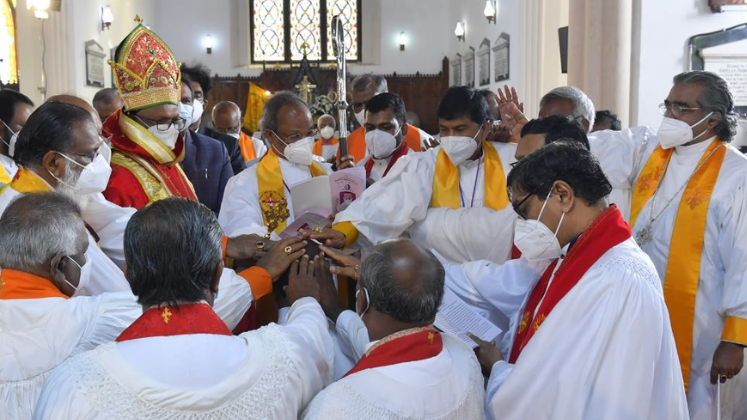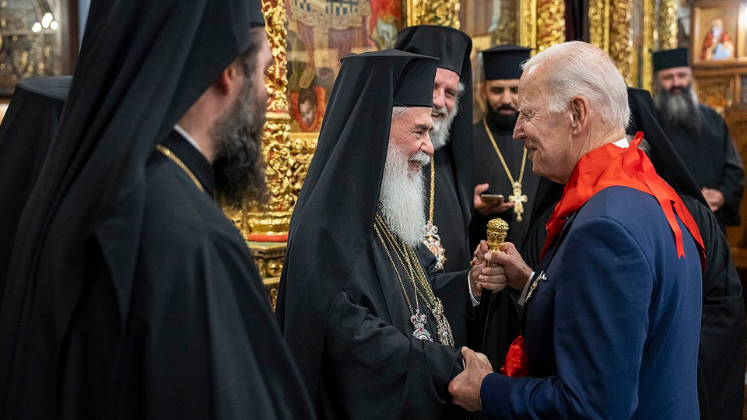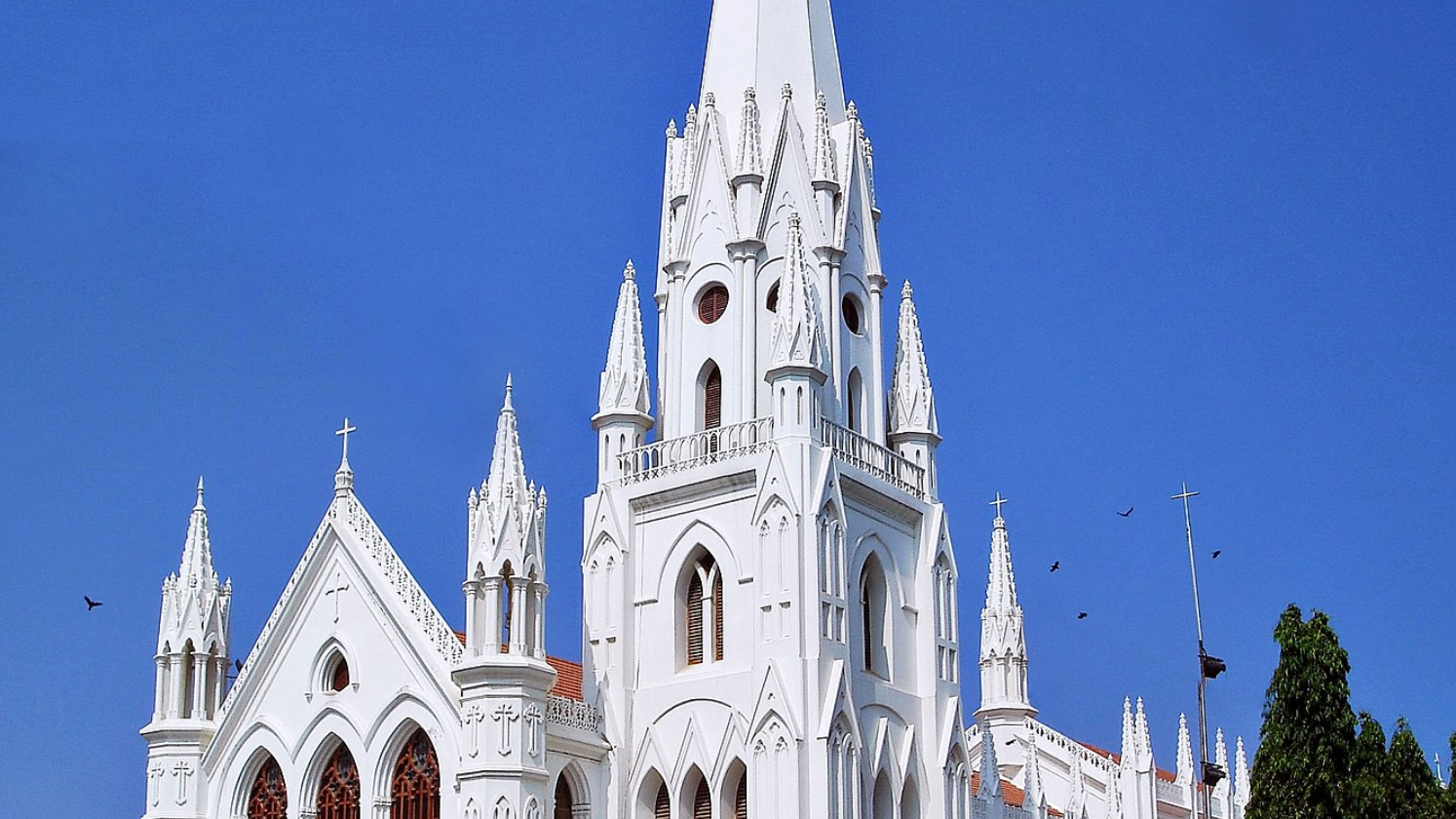Population trends have shifted the Anglican Communion’s centre of gravity decisively toward the Global South, with approximately three out of four Anglicans globally living outside of Europe and North America. This shift has led to a bitter inter-Communion rift in which the Global South has challenged the Global West’s “liberal” moral outlook, with debate particularly focused on the Global Western church’s growing acceptance of the LGBT community. Here, Dominic Nozzarella explores the history of the Anglican Realignment and how it has reconceptualised Anglicanism and its future, and threatened to tear it apart.

Anglicanism’s Demographic Shift
Today, Anglicanism represents the third-largest Christian denomination on the planet behind Roman Catholicism and Eastern Orthodoxy. While originally a relatively small, colonial denomination beyond Britain, the church underwent a radical demographic shift over the course of the late 19th and 20th centuries. New trends in evangelism and missionary work brought increasing numbers of people into the Anglican church from across the British Empire. Evangelism from the late 19th century to the present has created fledgling Anglican communities in parts of Latin America, Africa, and Asia, where the British Empire had no presence. In the 21st century, Anglicanism has shed its identity as a white, colonial church whose constituents primarily live in the Anglosphere Global West. Today, the vast majority of Anglicans live in the Global South, and this reality is increasingly more pronounced as the Global West’s churches continue to see loss of membership.
The Anglican churches of Nigeria, Uganda, Kenya, and Rwanda represent the explosive growth of Anglicanism in the Global South. The active and growing membership of each of these churches easily equals, and even surpasses, the active church-going Anglican population of the Global West collectively, and represents much younger church populations. The starkest comparison is the juxtaposition between the booming African churches and the relatively modest Episcopal Church (TEC) in the United States, which is losing members and whose active population is quickly aging. Nigeria stands out as an example of this new paradigm, with the church claiming 18 million members. While smaller than the Church of England, the Church of Nigeria is believed to have a larger active and practicing membership.
Current Archbishop of Canterbury Justin Welby summarised the state of Anglicanism’s new global, Africa-centered identity at the most recent Lambeth Conference, stating that, “The average Anglican is a woman in her 30s living in sub-Saharan Africa on less than four dollars per day”. This characterisation is a far cry from the historical image of the average Anglican as an affluent, cosmopolitan Episcopalian in Boston, or a hereditary middle-class parishioner in London. Many Global Southern Anglicans have conceptualised their place in the larger Anglican identity as the undeniable future of the church, where vibrant, orthodox, evangelical, and charismatic Anglicanism can continue to thrive and grow, while stagnant and overly-liberal Anglicanism in the Global West ages and fades away.
A Clash of Values
The shift of the locus of Anglicanism to the Global South is undeniable, and has deep implications for Anglican identity. Importantly, it has resulted in a crisis of values and identity for Anglicanism, which has threatened to split the Anglican Communion apart altogether. The Anglican churches of the Global West, particularly the Episcopal Church, have far outpaced the Global South in adopting socially and culturally progressive values. The Episcopal Church, for example, is decidedly pro-choice, has embraced same-sex marriage, and has ordained women as priests since the 1970s. While the Church of England has lagged behind the Episcopal Church on these fronts, it, along with other Global Western churches, have generally followed a liberal course on social issues relative to other Christian denominations. This has brought the Global Western churches, with the Episcopal Church at the forefront, into conflict with the Global Southern churches, led by African, Latin American, and Southeast Asian provinces of the Communion.
The Global Southern churches have taken more culturally conservative stances on social issues. This has manifested itself in virulent opposition to abortion, and a more muddled, ambiguous position on women’s ordination, particularly to the episcopate. Global Southern frustration with “western liberalism” has been especially focused on rejecting LGBTQ+ recognition by the church, whether in ordination, marriage, or an acknowledgement of the validity of same-sex relationships. Global Southern churches have embraced a role in which they frame themselves as the torch-bearers of biblically-centred Anglicanism, challenging the historical eminence of the Episcopal Church and the Church of England. The Global South has accused the Global Western churches of sliding into grave liberal heresy and secularism, as well as tolerating rampant apostasy toward central Christian doctrines such as the Trinity and the Resurrection.
While relatively united, the Global South is not purely a monolith. For example, the Anglican Church of Southern Africa is comparatively liberal to other African and Global South churches. Moreover, there is diversity within Global Southern provinces themselves, with some dioceses and clergy varying in theological alignment.
An important component of the rallying cry of Global Southern churches is the idea that the wealthier, overwhelmingly white Global Western churches have engaged in neo-colonialism, imposing their liberal theological, political, and moral views on the traditional-leaning Global South in what is tantamount to cultural imperialism. The Episcopal Church in particular has been accused of financially coercive and colonial attitudes toward the Global South.
In this same anti-colonial vein are debates regarding the usefulness and necessity of the Archbishop of Canterbury as the spiritual figurehead of the Communion, while the African archbishops lead more followers and hold to conservative orthodoxy. It culminated this year with the Global South bishops declaring that they no longer considered the Archbishop of Canterbury “first among equals,” citing the Church of England’s vote to offer blessings to same-sex couples. As a result of the recent November synod confirmation of this, some Church of England evangelicals have called on conservative Anglicans in Britain to “jump ship” and join the relatively new Global South-backed Anglican Network in Europe (ANiE).
For Global South Anglicans, these ongoing discussions strike at whether Anglicanism actually needs Canterbury or the West to continue to thrive, and whether or not the Global Southern churches would be better off going their own way. Debates questioning whether an Anglican needs to be in communion at all with Canterbury to be considered Anglican, continue to redefine and renegotiate the Anglican identity for many. These questions only grow more pressing as the Global South continues to threaten outright future schism with Canterbury. As of 2023, several Global South primates have already announced a state of impaired or broken communion with Global Western churches, including the Church of England, as a response to what the Global South sees as straying from the “Anglican way”. Some conservative Anglicans have put forward that the Global South must create an orthodox “Global Anglican Communion” and leave the Western “Canterbury Communion” permanently behind. This includes replacing the “See of Canterbury” with a new spiritual centre for Anglicanism, breaking away from Anglicanism’s colonial, Britain-centered past. Other Global South personalities oppose this, arguing that conservative Anglicans have a duty to work to preserve the Anglican Communion.
The Realignment Takes Full Shape
Friction first reached a fracturing point in 2003 with the consecration of openly-gay Episcopal priest Gene Robinson as Bishop of New Hampshire, which proved to be “the last straw” for Global Southern churches and theologically conservative Episcopalians. Robinson’s consecration turned North America into the primary battleground of the “Anglican Realignment.” Global Southern churches responded by launching networks for diaspora Anglicans and conservative Episcopal churches, with some individual churches separating from the Episcopal church and aligning themselves directly under the jurisdiction of Nigeria, Rwanda, and the province of South America. The Church of Nigeria and other Global South bishops also resolved to break communion with the Episcopal Church and the Anglican Church of Canada, a severe reaction which has officially shattered the unity of the Communion.
In 2008, the churches of Nigeria, Rwanda, Uganda, and the Anglican Church of South America launched the “Anglican Church in North America” (ACNA) as a conservative alternative to the Episcopal Church, leading to an exodus of conservative Episcopalians and Anglican Canadians into this new denomination. Fierce litigation over church properties, aggressive church-planting by the ACNA, and general resentment over the schism continues to dominate TEC-ACNA relations. Conservative Anglican splinter denominations and dioceses have emerged and come to associate with the Global South in England, New Zealand, Brazil, and Australia. The most well-known of these is likely the Free Church of England (FCE), which political commentator Calvin Robinson had been associated with until this month. While the independent denominations and networks are not in communion with Canterbury as official Anglican provinces, they have all found official recognition by the increasingly influential Global South primates.
Two main movements of the conservative Anglican camp have emerged. The Global South Fellowship of Confessing Anglicans (GSFA) is the older movement, more focused on working within the Anglican Communion to create links among conservative provinces. The other, the Global Anglican Future Conference (GAFCON), largely works to strengthen and form alternative structures for conservatives in the Global West. GAFCON 2008 issued the Jerusalem Statement and Declaration, emphasising and affirming a commitment to biblical authority as well as traditional and orthodox Anglican values. The Kigali conference earlier this year further cemented condemnation and schism among Global South primates with Canterbury in response to liberal trends in the Church of England. While GAFCON and GSFA overlap significantly, they are distinct in ethos. Some observers believe that the differences between the two organisations are shrinking and that they might become one movement given the Global West’s growing liberalism. Others see a merger as implausible, but acknowledge that the current dynamics are likely unsustainable given the overlap in membership and each group’s distinct ethos and desire to grow their influence.
Interestingly, while the GSFA, and especially GAFCON, stress an anti-colonial ethos against a neo-imperial Global West, the American ACNA seems to have a disproportionate influence in GAFCON in particular. Despite ACNA’s meager size in comparison to the Global South provinces, GAFCON appears deeply invested in ACNA. Its archbishop, Foley Beach, served as GAFCON’s chair from 2019 to 2023. One could read this as an indication of a flimsiness of the Global South’s anti-colonialism, or as evidence of GAFCON bringing Americans and Europeans into a new Global South-centered structure in an unprecedented way.
The Anglican Communion’s Lambeth Conferences, which are a decennial assembly of bishops held in London, have become an important arena for the Anglican Realignment. The 2008 Lambeth Conference was dominated by strife regarding the rise of GAFCON, seen by some as an alternative Lambeth, and was boycotted by the primates of Nigeria, Uganda, Kenya and Rwanda due to their dissatisfaction with the Episcopal Church. At the 2022 Lambeth Conference, Global Southern bishops refused to take Holy Communion with gay and lesbian bishops, and both the Global South and West camps produced rival statements articulating their positions on homosexuality. The GAFCON-aligned bishops made clear their desire to have the Episcopal Church sanctioned and to reaffirm the Anglican Communion’s disapproval of homosexuality.
The ongoing Anglican Realignment continues to tear at the fabric of the Anglican Communion, with no sign of healing. Neither camp has shown much willingness to relent or compromise regarding their moral outlook, and the unity of the Communion has been de facto shattered. The rise of the Global South has necessitated a re-examining of what it means to be Anglican, what Anglicanism can and will look like in the coming century, and the Global South’s relationship to the Global West. Whether or not the Global South will officially go its own way, or continue to try and enforce conservative beliefs within the framework of the Communion is uncertain. However, division is likely to continue to deepen and calcify, and only time will tell what Anglicanism will look like in the future as it evolves into a Global Southern, Africa-centered tradition.





